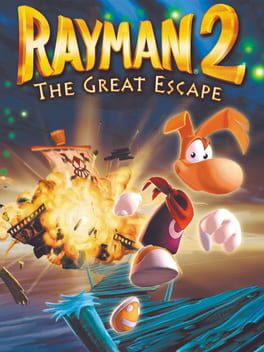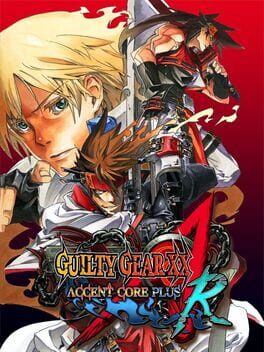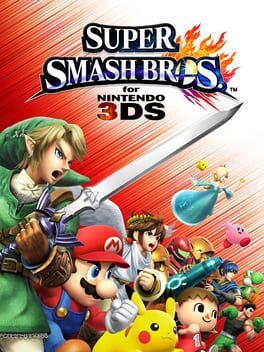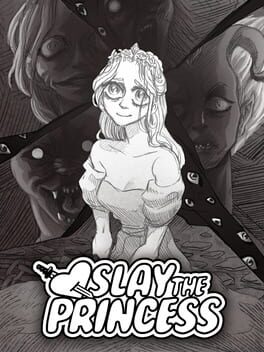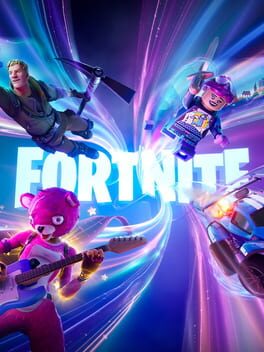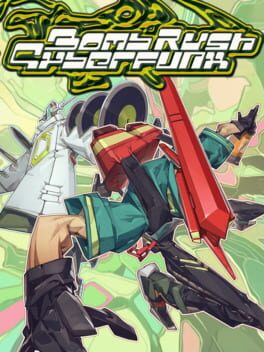dizzyrobo
81 reviews liked by dizzyrobo
Puzzle Swap
2011
the appeal of a convention stems from the yawning tide of people who embody it; a mass of the like-minded enveloping a space, to the extent that one could never meet or know every one at once. the homogeneity would not be pleasant if it permeated our entire lives, but to momentarily enter a crowd knowing that each person among it could understand your drive and passion is invigorating. when I come to these I tend to roam solo, poking my head into every room I find and silently people-watching from the sidelines. I greet friends of course, and I may strike up a conversation in line waiting for a cabinet, but I find my immersion into the atmosphere alone provides a mental balm before even socializing comes into play.
every year going to magfest I plan new ways to make the experience more comfortable: a well-rounded diet, planned breaks, and more consistent sleeping arrangements. this time my new innovation was a fanny pack, replacing the cumbersome backpack of previous trips with something less intrusive and throwing my misplaced sense of embarrassment at wearing one out the window. with this came a swap from my switch to the smaller form factor of my 3ds. I've come to really lean into my 3ds as of late, bringing it to long waits at the barber or when lazing around at a friend's house. at some point I realized that all my downtime wasted on scrolling twitter could be funneled into a marginally more meaningful hobby by using my 3ds instead. besides, the console is becoming a bit retro! recently a young child saw me with one and asked their mother about the strange two-screened phone I was holding, begging to peer over my shoulder while I played dragon quest.
bringing the 3ds to magfest also gave me the opportunity to try to shore up my puzzles on streetpass, which I had neglected for quite some time. the entire idea behind streetpass - every person's 3ds signalling out in an attempt for two to pass each other and exchange information - was an outgrowth of nintendo's attempts to turn the handhelds into tools for positive social reinforcement, originating at least as far back as the nascent pokemon exchanges on the original game boy. it turned the 3ds into something that continually engaged with the world while you did, giving you brief glimpses into the lives of those around you while you traveled. the most basic of these was puzzle swap, less of a game and more of a mass exercise in collecting pieces of various puzzles distributed by nintendo through occasional content updates. some pieces you could roll for using "play coins" collected while walking with the 3ds in your pocket, but some were exclusively gained through trading with others, and in general the most consistent way to locate certain pieces was by trading with as wide of a group of people as possible. of course, this collaborative effort operated best in a world of mass public transit and high population density, traits missing from the suburban american experience. my regular streetpass contacts were ones at my high school, and the minimal outside interaction led to an eventual disinterest in churning through the same puzzle collections day after day. the eventual death of the 3ds only cemented the end of my streetpassing days.
even just from waiting in the eye-watering badge pickup line at the con, snaked switchback style across an expo room before leaking out from one side of the building to the other, I had already matched with at least 10 people, showering me with new pieces and puzzles I had never gotten a chance to download. a feature past my time called "bonus chance" had kicked in, giving me many pieces from each individual I streetpassed instead of just one like the old days and letting me mop up my collection way quicker than I had anticipated. every break I took during the con seemed to have at least a couple more people trickle into my waiting queue, and by the end of the con I had collected every trade-only piece with less than 100 to go overall. there were people walking around with all of the pieces, people walking around with just a few, some who had scarcely updated their streetpass since the mid '10s, and others who seemed to have gotten in on the tail-end of the whole phenomenon, with lots of pieces for the last few puzzles and barely any for the early ones. for a weekend, this social game that had withered away over five years prior got the chance to bloom again.
these people who I previously just saw from afar, stood next to at adjacent cabinets, or sat behind at a panel now became little figments inside my 3ds. I had always perceived the con as a regional experience, but their data now told me there were those as far as the west coast or even alaska participating, perhaps expats who had moved close by, or former residents flying back to stay with friends. little tidbits such as their most recently played game gave me insight into their tastes, and many of them had included celebratory messages of excitement for the return of the con. their collections, their smiling avatars, their flairs, their messages; it humanized these many con attendees who I often had passed by and further strengthened that bond we shared of mutual attendance. after years of using an ugly caricature of mips from sm64 as my avatar, I finally changed it to one that reflected my face. it only seemed natural to give them the same clarity they gave me.
every year going to magfest I plan new ways to make the experience more comfortable: a well-rounded diet, planned breaks, and more consistent sleeping arrangements. this time my new innovation was a fanny pack, replacing the cumbersome backpack of previous trips with something less intrusive and throwing my misplaced sense of embarrassment at wearing one out the window. with this came a swap from my switch to the smaller form factor of my 3ds. I've come to really lean into my 3ds as of late, bringing it to long waits at the barber or when lazing around at a friend's house. at some point I realized that all my downtime wasted on scrolling twitter could be funneled into a marginally more meaningful hobby by using my 3ds instead. besides, the console is becoming a bit retro! recently a young child saw me with one and asked their mother about the strange two-screened phone I was holding, begging to peer over my shoulder while I played dragon quest.
bringing the 3ds to magfest also gave me the opportunity to try to shore up my puzzles on streetpass, which I had neglected for quite some time. the entire idea behind streetpass - every person's 3ds signalling out in an attempt for two to pass each other and exchange information - was an outgrowth of nintendo's attempts to turn the handhelds into tools for positive social reinforcement, originating at least as far back as the nascent pokemon exchanges on the original game boy. it turned the 3ds into something that continually engaged with the world while you did, giving you brief glimpses into the lives of those around you while you traveled. the most basic of these was puzzle swap, less of a game and more of a mass exercise in collecting pieces of various puzzles distributed by nintendo through occasional content updates. some pieces you could roll for using "play coins" collected while walking with the 3ds in your pocket, but some were exclusively gained through trading with others, and in general the most consistent way to locate certain pieces was by trading with as wide of a group of people as possible. of course, this collaborative effort operated best in a world of mass public transit and high population density, traits missing from the suburban american experience. my regular streetpass contacts were ones at my high school, and the minimal outside interaction led to an eventual disinterest in churning through the same puzzle collections day after day. the eventual death of the 3ds only cemented the end of my streetpassing days.
even just from waiting in the eye-watering badge pickup line at the con, snaked switchback style across an expo room before leaking out from one side of the building to the other, I had already matched with at least 10 people, showering me with new pieces and puzzles I had never gotten a chance to download. a feature past my time called "bonus chance" had kicked in, giving me many pieces from each individual I streetpassed instead of just one like the old days and letting me mop up my collection way quicker than I had anticipated. every break I took during the con seemed to have at least a couple more people trickle into my waiting queue, and by the end of the con I had collected every trade-only piece with less than 100 to go overall. there were people walking around with all of the pieces, people walking around with just a few, some who had scarcely updated their streetpass since the mid '10s, and others who seemed to have gotten in on the tail-end of the whole phenomenon, with lots of pieces for the last few puzzles and barely any for the early ones. for a weekend, this social game that had withered away over five years prior got the chance to bloom again.
these people who I previously just saw from afar, stood next to at adjacent cabinets, or sat behind at a panel now became little figments inside my 3ds. I had always perceived the con as a regional experience, but their data now told me there were those as far as the west coast or even alaska participating, perhaps expats who had moved close by, or former residents flying back to stay with friends. little tidbits such as their most recently played game gave me insight into their tastes, and many of them had included celebratory messages of excitement for the return of the con. their collections, their smiling avatars, their flairs, their messages; it humanized these many con attendees who I often had passed by and further strengthened that bond we shared of mutual attendance. after years of using an ugly caricature of mips from sm64 as my avatar, I finally changed it to one that reflected my face. it only seemed natural to give them the same clarity they gave me.
The thing about "Childlike Wonder" is that it accounts for both the beautifully earnest, warm, yet often unsettling and traumatic experiences of early life. Despite the game's general lack of challenge, Rayman 2's world perfectly walks the line between lush, comforting sentimentality and supernatural peril. It captures the bizarre, wholesome yet visually disturbed imagination of an adolescent kid. Only a handful of minutes traversing the dimly lit, melancholic Glade of Dreams is enough to lure the player into a false sense of security, preying upon the childlike naïveté the game’s atmosphere promotes. This is used to toss them into a blind pit of jarring sounds and visuals crafted from the most chaotic recesses of a child’s creative mind. Whether they’re the unintelligible mumblings of a limbless marsupial-dog hybrid, or the horror of escaping the clutches of a toothed monster from within its maw, these striking visuals, much like the memories and thought processes of a child are seen as erratic or hard-to-follow in the eyes of a more jaded adult. This is why, in a meta sense, it feels almost poetic that this game has no definitive version, having been re-released on all but your TI-84 X Calculator over nearly two decades, each platform offering a somewhat different interpretation on the game's vision.
Dragon's Dogma II
2024
My Policy Guidelines
-----------------------------------------------------------
"I know Kino when I see it"
What I find most interesting about Guilty Gear is that if I wanted to not like it a lot of the underlying complaints I have expressed with the fundamentals of league could apply here. While league felt tactile and rewarding to press the buttons and play a game, while the controls felt great. The amount of over complexity to setting up and learning the game, the excessive roster size (meaning you cant really guarantee knowledge and awareness on every matchup), and the obscure systems you have to learn from external knowledge is something that both games share. So why is it a problem in League and not in Guilty Gear?
There's a few shallow but not altogether dismissable reasons why. League is a team game, unlike guilty gear, so your mistakes get intensified by others and the culture of mocking people for mistakes is thus more intense. League emphasizes that there's a lot of setup you need to do and understand before you can even hop in, runes, shops items, etc. And of the course the length of a game is radically different, League's game system is 30-45 minutes per game which means if you feel miserable or dont want to play, you're trapped with the game for much than you might otherwise want. These distinctions do actually matter in terms of interfacing with these systems and their general implications. Instead of being about self improvement its about improving for a team and struggling to keep up. The more isolated way the game presents itself here allows for improvement and enjoyment at your own pace. With all that said though I do think that its worth the comparison because my experiences with non-platform fighting games, like Street Fighter and Skullgirls has been seeded with a degree of extreme frustration. Not being able to execute the moves I want to feels painful and often it feels like the game itself is moving at a pace that I can't possibly keep up with. Functionally not much is experienced differently on the macro level of trying to learn a game and failing between these 2 systems of complexity, fast execution, and deadly reflex.
Where Guilty Gear succeeds where these other games fail is that the game itself is so amusing and so bizzarre that getting the inputs right 100% of the time doesnt really matter. They went above and beyond in terms of player expression here, you can play a robot who set explosive traps or a girl wielding an anchor as a weapon. This player expression is something I complimented league for to, but the difference is that you don't feel tied down to having to learn the game or enjoy it through just 1 character. The game itself is fun enough to mash buttons in and try to get cool tricks to happen on screen.
Guilty Gear realized that the best way to make a game rewarding to play is to make it fun for casual players to mess around in. Skullgirls has a character entirely built around the concept of using drills but most of their attacks are built up in large chains you desperately have to flail to input properly. Meanwhile Guilty Gear gives plenty of decent and easy to execute attacks in neutrals or diagonals, then you can just flirt around with the half circles and chains from there as it suits you. Making the early game play experience not about technical execution at all costs in order to have a good time and not feel like you're missing out on half your attacks is pretty important. As long as I can get the dolphin attack to pop up from play as May once every game or so I'm fine.
The aesthetic components of Guilty Gear are also great. The game has a young adult anime feel similar to Baccano in that all the characters have a distinct personality and set of goals. The large roster becomes a positive because it feels like you're learning about a world through character play.
Overall the momentum based gameplay is so entirely satisfying that it becomes impossible not to recommend. I can also completely understand why the trans community was so excited to see Bridget come out as trans to, shes really cute and has peak 'boymoder' vibes in these earlier titles. A lot of japanese media feels pretty comfortable just resting on a net level of gender subversion, presenting a girl as a boy or vice versa, that to see transition as such a legitimate narrative throughline in Strive is really amazing.
You don't have to play a game for 30 hours to know if a game is good, you don't have to become an 'expert' that 'ordains' an opinion onto a game. Sometimes you just kinda know. Even if I never become good at this game or series I'll still respect it immensely and be able to squeeze at least 20 to 30 hours of fun out of each title jumping around and doing the flashy attacks.
-----------------------------------------------------------
"I know Kino when I see it"
What I find most interesting about Guilty Gear is that if I wanted to not like it a lot of the underlying complaints I have expressed with the fundamentals of league could apply here. While league felt tactile and rewarding to press the buttons and play a game, while the controls felt great. The amount of over complexity to setting up and learning the game, the excessive roster size (meaning you cant really guarantee knowledge and awareness on every matchup), and the obscure systems you have to learn from external knowledge is something that both games share. So why is it a problem in League and not in Guilty Gear?
There's a few shallow but not altogether dismissable reasons why. League is a team game, unlike guilty gear, so your mistakes get intensified by others and the culture of mocking people for mistakes is thus more intense. League emphasizes that there's a lot of setup you need to do and understand before you can even hop in, runes, shops items, etc. And of the course the length of a game is radically different, League's game system is 30-45 minutes per game which means if you feel miserable or dont want to play, you're trapped with the game for much than you might otherwise want. These distinctions do actually matter in terms of interfacing with these systems and their general implications. Instead of being about self improvement its about improving for a team and struggling to keep up. The more isolated way the game presents itself here allows for improvement and enjoyment at your own pace. With all that said though I do think that its worth the comparison because my experiences with non-platform fighting games, like Street Fighter and Skullgirls has been seeded with a degree of extreme frustration. Not being able to execute the moves I want to feels painful and often it feels like the game itself is moving at a pace that I can't possibly keep up with. Functionally not much is experienced differently on the macro level of trying to learn a game and failing between these 2 systems of complexity, fast execution, and deadly reflex.
Where Guilty Gear succeeds where these other games fail is that the game itself is so amusing and so bizzarre that getting the inputs right 100% of the time doesnt really matter. They went above and beyond in terms of player expression here, you can play a robot who set explosive traps or a girl wielding an anchor as a weapon. This player expression is something I complimented league for to, but the difference is that you don't feel tied down to having to learn the game or enjoy it through just 1 character. The game itself is fun enough to mash buttons in and try to get cool tricks to happen on screen.
Guilty Gear realized that the best way to make a game rewarding to play is to make it fun for casual players to mess around in. Skullgirls has a character entirely built around the concept of using drills but most of their attacks are built up in large chains you desperately have to flail to input properly. Meanwhile Guilty Gear gives plenty of decent and easy to execute attacks in neutrals or diagonals, then you can just flirt around with the half circles and chains from there as it suits you. Making the early game play experience not about technical execution at all costs in order to have a good time and not feel like you're missing out on half your attacks is pretty important. As long as I can get the dolphin attack to pop up from play as May once every game or so I'm fine.
The aesthetic components of Guilty Gear are also great. The game has a young adult anime feel similar to Baccano in that all the characters have a distinct personality and set of goals. The large roster becomes a positive because it feels like you're learning about a world through character play.
Overall the momentum based gameplay is so entirely satisfying that it becomes impossible not to recommend. I can also completely understand why the trans community was so excited to see Bridget come out as trans to, shes really cute and has peak 'boymoder' vibes in these earlier titles. A lot of japanese media feels pretty comfortable just resting on a net level of gender subversion, presenting a girl as a boy or vice versa, that to see transition as such a legitimate narrative throughline in Strive is really amazing.
You don't have to play a game for 30 hours to know if a game is good, you don't have to become an 'expert' that 'ordains' an opinion onto a game. Sometimes you just kinda know. Even if I never become good at this game or series I'll still respect it immensely and be able to squeeze at least 20 to 30 hours of fun out of each title jumping around and doing the flashy attacks.

